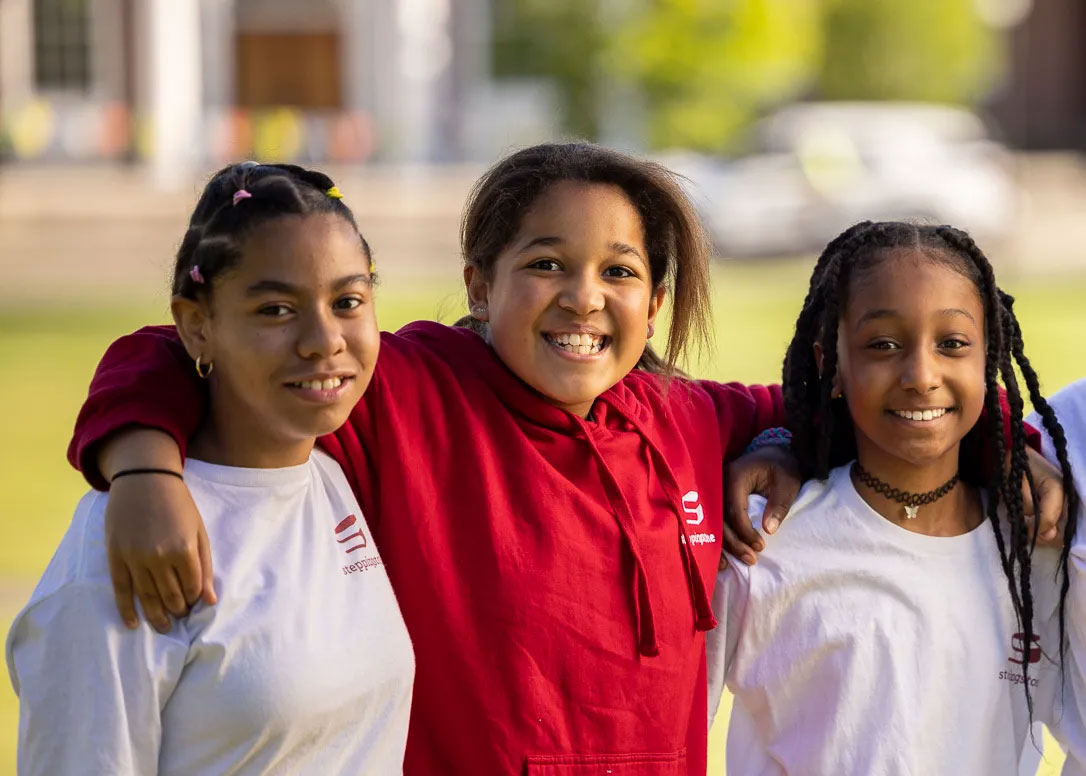The AJA Foundation has awarded Boston-based Steppingstone Foundation $25,000 and Richmond, Virginia-based Partnership for the Future $35,000 to support innovative college access programs. Since our inception, the AJA Foundation has supported education programs that predominantly serve low-income and first generation students from historically marginalized and disenfranchised communities. Recently we have transitioned to becoming more narrowly focused on programs that emphasize high school graduation and persistance through post secondary studies.
Steppingstone Foundation, founded in 1990 serves over 1,400 students each year and supports each scholar for 12 years or more. No other program in the region delivers comprehensive programming across 5th grade to post-grad. Similar to AJA Foundation funded non-profits, Pathfinder and Dean’s Future Scholars, Stepping Stone intervenes early, right before the important middle school years, to help students build a strong academic foundation and engage with peers in a college-bound community. Their admission process begins in grades 4 or 5 and involves a nomination, application, an interview and exam.
Then over the years, students receive academic preparation during summer and after school programs. As the students matriculate to middle and high school, Stepping Stone assists in finding “right fit” schools that provide the greatest opportunity for academic advancement. In high school the focus is on college readiness activities and the college application process. In college, advisors help scholars learn to navigate campus, persist from year to year and begin preparing for their careers.
Partnership for the Future (PFF), founded in 1994, serves 500 (10th grade through college) students each year. The organization is led by president and CEO Dionne Henderson who is a PFF alumna.
Unique to PFF is their robust workforce program that is a core component of programming. The majority of PFF students will have paid internships for two to three years at local fortune 500s, for-profit, and non-profit organizations. In addition to paid summer work experiences, PFF also matches up to $2,000 that students save for college in a Virginia 529 College Savings Account.
Scholars in the PFF program are also encouraged to set their bars high and compete to enter elite universities, which research shows impacts success trajectories and economic mobility. Since Henderson took the helm of the organization three years ago, she has prioritized access to highly selective schools that meet the needs of her students.
Low-income students who attend a highly selective, competitive or ivy league school have at least a 40% chance of earning in the top 20% of income, however only .4% of low-income students attend the most selective schools. Henderson believes this data is proof that students should be guided into applying for competitive schools as long as it’s fiscally responsible to do so.
PFF’s strategy and program model provides the mentorship and guidance students of color need to launch successful careers that will offer them financial stability and wealth that can be passed down to future generations. Their goal is not only to help their students achieve their own dreams, but to set them on the path to build generational wealth that will impact their families and communities for years to come. The PFF program strives for systemic change through educational equity.
We look forward to working more closely with Stepping Stone and Partnership for the Future in the coming months and are excited to be a part of the work that transforms lives through education.

